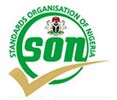What is Nigeria's Soncap Certification

The National Organization for Standardization of Nigeria (SON) is the government agency in Nigeria responsible for the formulation and implementation of quality standards for imported goods and home-made products. In order to ensure that controlled products meet the country's technical standards or other international standards that have already been approved to protect Nigerian consumers from damage caused by unsafe or non-compliant products, the Nigerian National Bureau of Standards has decided to implement controlled products exported to the country. Mandatory conformity assessment procedure before loading (hereinafter referred to as SONCAP).
On March 1, 2013, the Nigerian Bureau of Standards officially issued a new SONCAP operating procedure. Afterwards, each independent third party will no longer directly issue SONCAP certification. Instead, the exporter will apply for product conformity certification (CoC) in the exporting country. The importer then applies for an SC certificate to the Nigerian Standards Agency (SON) with a valid CoC.
Certified product range
According to the latest announcement issued by SON (Nigeria Bureau of Standards) and CBN on July 29, 2009, all products and goods imported into Nigeria are classified as SONCAP except those controlled by the Nigerian Food and Drug Administration Control Agency (NAFDAC). Planned products. Except for NAFDAC regulated products, the following products are not subject to SONCAP regulations.
Certified product process
Nigerian certification is mainly divided into three steps:
The first step: product testing;
Step 2: Apply for three models of PC product certificate (A.B.C);
The third step: apply for a COC certificate;
Three forms of CoC certification
Route A, for occasional shipments during the year
After the exporter produces goods, the inspector examines the goods, and then samples are taken from the bulk goods. After passing the tests, a PR report is issued. Before shipment, the goods are loaded and sealed, and a CoC certificate is issued after passing the inspection.
The documents that need to be submitted are as follows:
1.CoC application form
2. Product Name, Product Photo, Customs Code
3. Box list
4. Proforma invoice
5.FORMM number
Route B, for the product shipped several times a year.
First, the exporter applies for a PC. The process for applying for a PC is as follows:
1. PC Application Form
2. Product Name, Product Photo, Customs Code
3. Qualified test reports issued by a qualified laboratory with ISO 17025
4. Perform a System Audit of the Factory
PC is valid for one year after getting it
After the goods are produced, the factory applies for the CoC process as follows:
1. CoC application form;
2. Box List
3. Proforma invoice
4. FORMM Number
After the data is complete, the goods are subject to a certain percentage of inspections, sampling tests and inspections, and the ratio is not less than 40%. CoC certificates are issued when qualified.
Route C, for frequent shipments in one year.
First apply for Licence from the factory, the application conditions are as follows:
1. At least 4 successful applications on Route B;
2. Two audits of the factory and pass;
3. Qualified test reports issued by qualified laboratories with ISO 17025 qualification;
The validity period after getting the license is one year.
After the goods are produced, the factory applies for the CoC process as follows:
4. CoC Application Form
5. Box List
6. Proforma invoice
7. FORMM Number
After the data is complete, the goods will be checked and supervised at a certain rate, not less than twice a year.
CoC certificate in exchange for SONCAP certificate
After the exporter obtains the CoC and provides it to the importer, the importer then applies for an SC certificate to the Nigerian Bureau of Standards (SON) for the customs clearance.